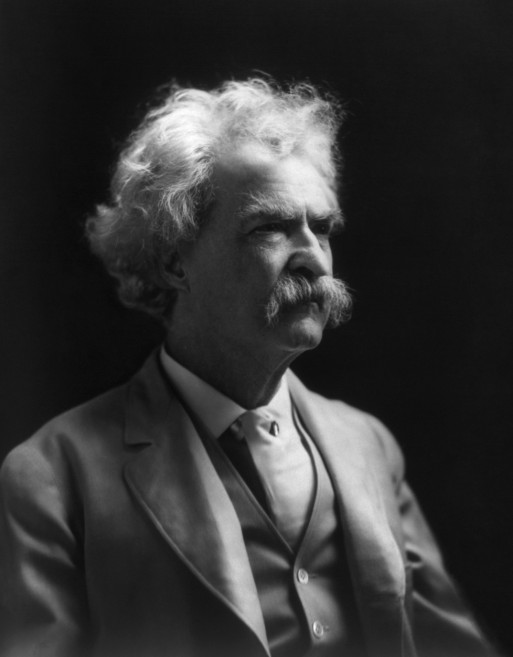 For some, death has a unique way of not only modifying your perspective of a person but also altering your understanding of your own relationship with him or her. You may find that suddenly, after passing, an acquaintance has become a close friend, or that, against all odds, a frustrating colleague has transformed into a hero. In the spirit of this metamorphosis, Mark Twain’s essay “At the Funeral” strips away the residual emotions that many may feel after hearing the news of a death and replaces it with a practical guide on helpful tips for how you are expected to act at a funeral.
For some, death has a unique way of not only modifying your perspective of a person but also altering your understanding of your own relationship with him or her. You may find that suddenly, after passing, an acquaintance has become a close friend, or that, against all odds, a frustrating colleague has transformed into a hero. In the spirit of this metamorphosis, Mark Twain’s essay “At the Funeral” strips away the residual emotions that many may feel after hearing the news of a death and replaces it with a practical guide on helpful tips for how you are expected to act at a funeral.
As Twain’s jovial essay begins with the invaluable advice, “Do not criticize the person in whose honor the entertainment is given,” we are immediately welcomed in on the joke that these rules present. Although funeral services are traditionally held for many reasons, typically the word “entertainment” is seldom used in conjunction with the proceedings. At least in my own experience, however, this is exactly the case of what many funeral-goers are participating in as soon as they arrive. A few years back, I was subjected to this anomaly myself after having to attend the consecutive funerals of both my uncle and my grandmother.
Although funeral services are traditionally held for many reasons, typically the word “entertainment” is seldom used in conjunction with the proceedings.
Although the occasion was solemn, for my own family of rambunctious New Jerseyans, the prospect of maintaining the level of solemnity typically required of funeral-goers was pretty much immediately thrown out the window. For us, this gathering of friends and family was treated with the same level of festivities that we had come to expect at an annual Christmas party. Even during the proceedings of the funeral itself, jokes were told, laughs were exchanged and shameless euphemisms were shared as we downplayed the shenanigans that both my uncle and my grandmother had been a part of in their primes.

Credit: Wikipedia
But regardless of a funeral’s entertainment value, Twain also advocates to “listen, with as intense an expression of attention as you can command, to the official statement of the character and history of the person in whose honor the entertainment is given.” Although for some, it may be hard to remember why this person needs to be honored; as an attendee, it is your responsibility to feign ignorance when “taffy is being distributed.” After all, funerals are generally just as important to the attendees as they are to the person being remembered. And even when the black sheep of the family passes away, there is always an opportunity to remark on the unique and lustrous color of the wool they may have tried to pull over your eyes.
You may find that all of the sudden, after passing, an acquaintance has become a close friend, or that, against all odds, a frustrating colleague has transformed into a hero.
Furthermore, Twain advises, “At the moving passages, be moved — but only according to the degree of your intimacy with the parties giving the entertainment, or with the party in whose honor the entertainment is given.” And perhaps this is the most sagely advice of all in his essay. The seriousness of death can oftentimes overshadow our views on those who have passed. While this is not to say that it is wrong to let bygones be bygones, taking Twain’s advice of acting accordingly at a funeral may be an excellent way to reflect on your own relationship with the person who you have lost. After all, there is no wrong way to grief. By examining the level of our own grief in reaction to the absence of someone we have lost, we may be able to understand ourselves better as well.
Related SevenPonds Articles:
- What is the ‘Simple’ Approach to Funeral Planning? An Interview with Poppy Mardall of Poppy’s Funerals
- Healing Touches: Planning a Memorial or Funeral
- 3 Gems of Wisdom on Planning for Death & a Home Funeral

 “At the Funeral” by Mark Twain
“At the Funeral” by Mark Twain


 John Mulaney’s “Funeral Planning” on Netflix: No Real Plan
John Mulaney’s “Funeral Planning” on Netflix: No Real Plan

 Composting Bodies Is Now Legal in a Dozen States
Composting Bodies Is Now Legal in a Dozen States














